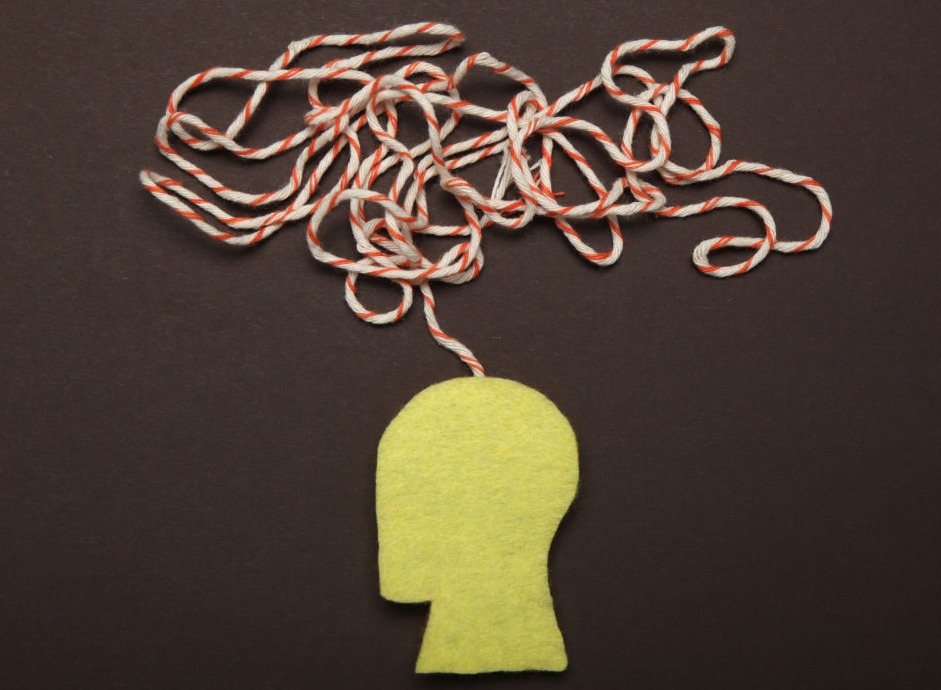Attention deficit hyperactivity disorder (ADHD) in adults: how can it be recognised and treated?
Published 26 May 2025 • By Claudia Lima
Do you often feel distracted, overwhelmed, impulsive? Always running and not making any headway? What if it was not ‘just stress’?
ADHD (Attention Deficit Hyperactivity Disorder) does not affect only children. In many adults, it goes unnoticed for years, causing mental fatigue, difficulties at work or in relationships, and low self-esteem.
How can you tell if you have ADHD as an adult? What are the signs to look out for? Who should you talk to about it? And above all, what can you do to regain control of your life?
Find all the answers in our article.

What is adult ADHD?
Attention deficit hyperactivity disorder (ADHD) is a neurodevelopmental disorder that affects adults as well as children. While in children the signs are often visible (motor hyperactivity, restlessness in class), in adults the symptoms may be more discreet, such as difficulties in organising themselves, managing time or maintaining attention.
Adult ADHD is often misunderstood and widely under-diagnosed. Many people mistakenly believe that it disappears with age, but it often persists into adulthood, even though some symptoms may improve. This disorder is not linked to a lack of willpower or motivation: it is a neurological condition that can have a major impact on daily life, relationships and work.
About 3-4% of adults in the UK suffer from ADHD, according to ADHD UK.
What are the symptoms of ADHD in adults?
Adult ADHD manifests itself through a series of symptoms that can profoundly disrupt daily life.
Persistent lack of attention
Adults with ADHD often find it difficult to stay focused on even a short task. They can easily lose focus, forget appointments or lose track in meetings. This affects productivity, leads to mistakes and can fuel a sense of failure.
Impulsivity that is hard to control
Decisions are often taken in a hurry, without thinking through the consequences. This can result in impulsive purchases, inappropriate speech or behaviour that is considered ‘too direct’. These reactions can damage relationships and professional stability.
Constant inner restlessness
In adults, ADHD is often expressed by internal tension rather than visible hyperactivity. It is difficult to settle down, relax or ‘put the brain to rest’. This mental overwork can lead to stress, anxiety and sleep problems.
Chronic lack of organisation and procrastination
Adults with ADHD often feel overwhelmed by simple tasks. Managing priorities, meeting deadlines and planning are often complicated. The tendency to procrastinate increases mental workload and anxiety.
Emotional hypersensitivity
Emotions are experienced in an amplified way: rapid frustration, irritability, sadness or excessive excitement. This emotional instability complicates social interaction and can undermine self-esteem in the long term.
Adult ADHD is frequently associated with other disorders, including anxiety, depression, sleep disorders and low self-esteem. These co-morbidities are common.
Why is ADHD often diagnosed late in adults?
Attention deficit hyperactivity disorder (ADHD) in adults is still often misunderstood or misdiagnosed, which explains why many people are not diagnosed until adulthood.
There are several reasons for this delay. Many unknowingly develop strategies to compensate for their difficulties, such as using reminders or avoiding complex situations, which can mask the symptoms.
ADHD also shares common signs with other disorders such as anxiety, depression or burn-out, making it more difficult to identify.
In addition, the lack of training in adult ADHD among some healthcare professionals can lead to errors or delays in diagnosis.
Finally, the stigma attached to mental disorders in adulthood often leads the people concerned to play down their difficulties or not to seek help.
How is ADHD diagnosed in an adult?
The diagnosis of ADHD in adults may seem complex, but it is essential for access to appropriate treatment. It is recommended to see a healthcare professional as soon as persistent difficulties in managing everyday life appear. These may include attention problems, marked impulsivity, frequent lack of organisation, constant inner agitation, or unusual irritability and frustration.
The diagnosis must be made by a trained professional, such as a psychiatrist, neuropsychologist or specialised psychologist, who is able to distinguish ADHD from other disorders with similar symptoms, such as anxiety or depression.
The diagnostic assessment is based on an in-depth clinical interview to retrace the history of symptoms and measure their impact. It also relies on standardised questionnaires and specific tests, used as part of an overall analysis conducted by a qualified professional.
There are a number of different questionnaires and tests available:
Questionnaires:
- ASRS (Adult ADHD Self-Report Scale) : validated by the WHO, widely used by general practitioners and psychologists.
- CAARS (Conners' Adult ADHD Rating Scales) : a very comprehensive tool, used in clinical settings (particularly by psychiatrists and neuropsychologists).
- Brown ADD Scales : focuses on executive functions; used by some professionals as an additional test.
- WURS (Wender Utah Rating Scale) : used to trace childhood symptoms, which is essential for making a diagnosis of ADHD according to the DSM-5 criteria.
- DIVA-5 (Diagnostic Interview for ADHD in Adults) : a recognised semi-structured interview, used by specialists trained in adult ADHD.
Neuropsychological tests:
- TOVA (Test of Variables of Attention) : a recognised computerised test.
- CPT-3 (Continuous Performance Test) : a variant of TOVA, also used to assess sustained attention and inhibition.
- Stroop Test : this is a classic neuropsychological test which measures cognitive inhibition.
- Trail Making Test (TMT) : tests to measure mental flexibility and attention.
- WAIS-IV (Wechsler Adult Intelligence Scale) : certain subtests, tests designed to assess a specific aspect of an overall test, are used in ADHD assessments.
The results obtained using these tools help to confirm or refute the diagnosis of ADHD, and to distinguish this disorder from similar conditions. Once the diagnosis has been established, a personalised treatment plan can be worked out for the patient.
What treatments are available for an adult ADHD ?
The treatment of attention deficit hyperactivity disorder (ADHD) in adults is based on a combination of medication, therapy and psychological support.
Medication
Methylphenidate is a common treatment for adults with ADHD. Marketed under names such as Ritalin®, Concerta®, Equasym® or Medikinet®, it works by increasing dopamine and noradrenaline in the brain, thereby improving attention and reducing impulsivity. When methylphenidate is ineffective or poorly tolerated, non-stimulant alternatives such as atomoxetine (Strattera®) may be prescribed.
Cognitive and behavioural therapy (CBT)
Cognitive behavioural therapy (CBT) is recommended to help adults with ADHD develop coping strategies. They aim to change negative thinking patterns and problem behaviours, focusing on time management, organisation, problem solving and emotional regulation.
Coaching and psychological education
Specialised coaching and psychological education can be a complement for medication and therapy. Coaching helps individuals identify their goals, draw up action plans and develop specific skills to manage the day-to-day challenges associated with ADHD, while psychological education provides information about ADHD, its symptoms and its impact, enabling patients and their families to better understand the disorder and actively participate in the treatment process.
Such multidisciplinary approach implies the collaboration of different healthcare professionals such as psychiatrists, psychologists, coaches and specialist educators.
Some tips for a better life with ADHD
There are some tips that can help adults with ADHD manage their symptoms more effectively and improve their quality of life:
- Manage your time effectively: use methods such as the Pomodoro technique (25 min work, 5 min break) to improve concentration. Plan your days with fixed time slots and set realistic goals to avoid overload.
- Get organised using the right tools: diaries, to-do lists, smartphone reminders, etc. These tools can give structure to your day. Creating simple, regular routines helps reduce forgetfulness and increase stability.
- Create a distraction-free environment: establish a calm, uncluttered workspace. Use noise-cancelling headphones or soft music to improve concentration. Avoid visual or digital distractions.
- Learn to say no: protect your time and energy by setting clear limits. Refusing certain requests is not a failure, it is a gesture of self-preservation.
- Get support: talk about your ADHD to people you trust. Join support groups or see trained professionals for personalised advice and long-term support.
Was this article helpful to you?
Give it a like and share your thoughts and questions with the community in the comments below!
Take care!
Sources :
Trouble déficit de l’attention avec ou sans hyperactivité de l’enfant (TDAH), ameli.fr
Trouble déficit de l’attention avec ou sans hyperactivité (TDAH) : repérer la souffrance, accompagner l’enfant et la famille, has-sante.fr
Définition du TDAH et épidémiologie de l’adulte, tdah-france.fr
Minute d’attention − C’est quoi le TDAH ?, inserm.fr
Idées reçues sur le TDAH, parlons-tdah.fr
Trouble déficit de l’attention/hyperactivité (TDAH) : Prévalence et étiologies, handiconnect.fr
Prévalence, tdah-age-adulte.fr
Connaissez-vous le trouble du déficit de l'attention (TDAH) ?, info.gouv.fr
20 signes du TDAH : Comment Reconnaître les Symptômes du Trouble du Déficit de l’Attention, tdahpratique.com
TDAH chez l'adulte : 8 symptômes pour identifier ce trouble, psychologue.net
"Stigmatisation et ignorance" : pourquoi l'Europe a-t-elle du mal à reconnaître le TDAH chez l'adulte ?, euronews.com
Comment, adulte, mon diagnostic de TDAH a changé ma vie, faire-face.fr
La nouvelle stratégie nationale 2023-2027 pour les troubles du neuro-développement (TND) : autisme, Dys, TDAH, TDI, ffdys.com
Considérations pratiques pour l’évaluation et la prise en charge du Trouble Déficit de l’Attention/Hyperactivité (TDAH) chez l'adulte, encephale.com
Pourquoi donne t’on un traitement ?, tdah-partout-pareil.info
Méthylphénidate et autres molécules, où en est la recherche dans le traitement du TDAH ?, lemonde.fr
Comments
You will also like

ADHD: "I couldn't sleep at one point because my head was so full of thoughts."
11 Jan 2023 • 1 comment

 Facebook
Facebook Twitter
Twitter

